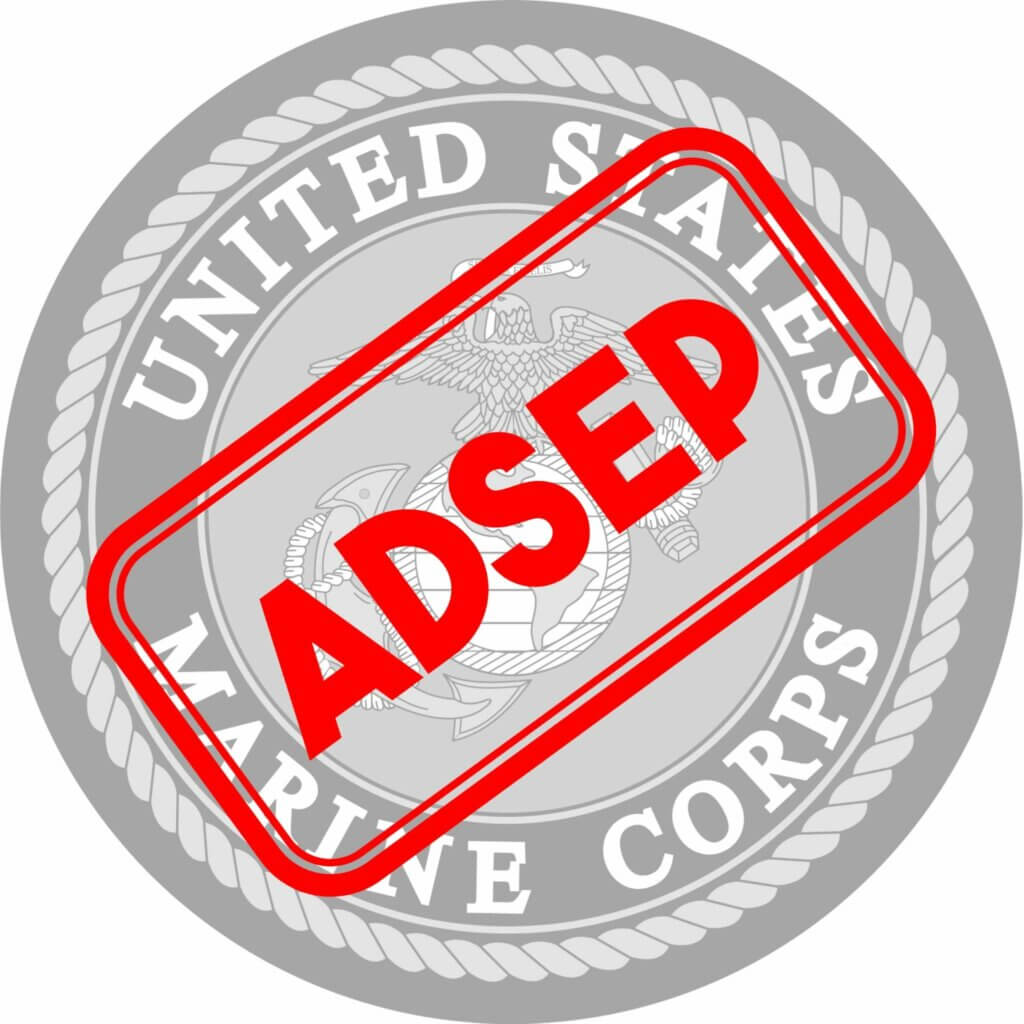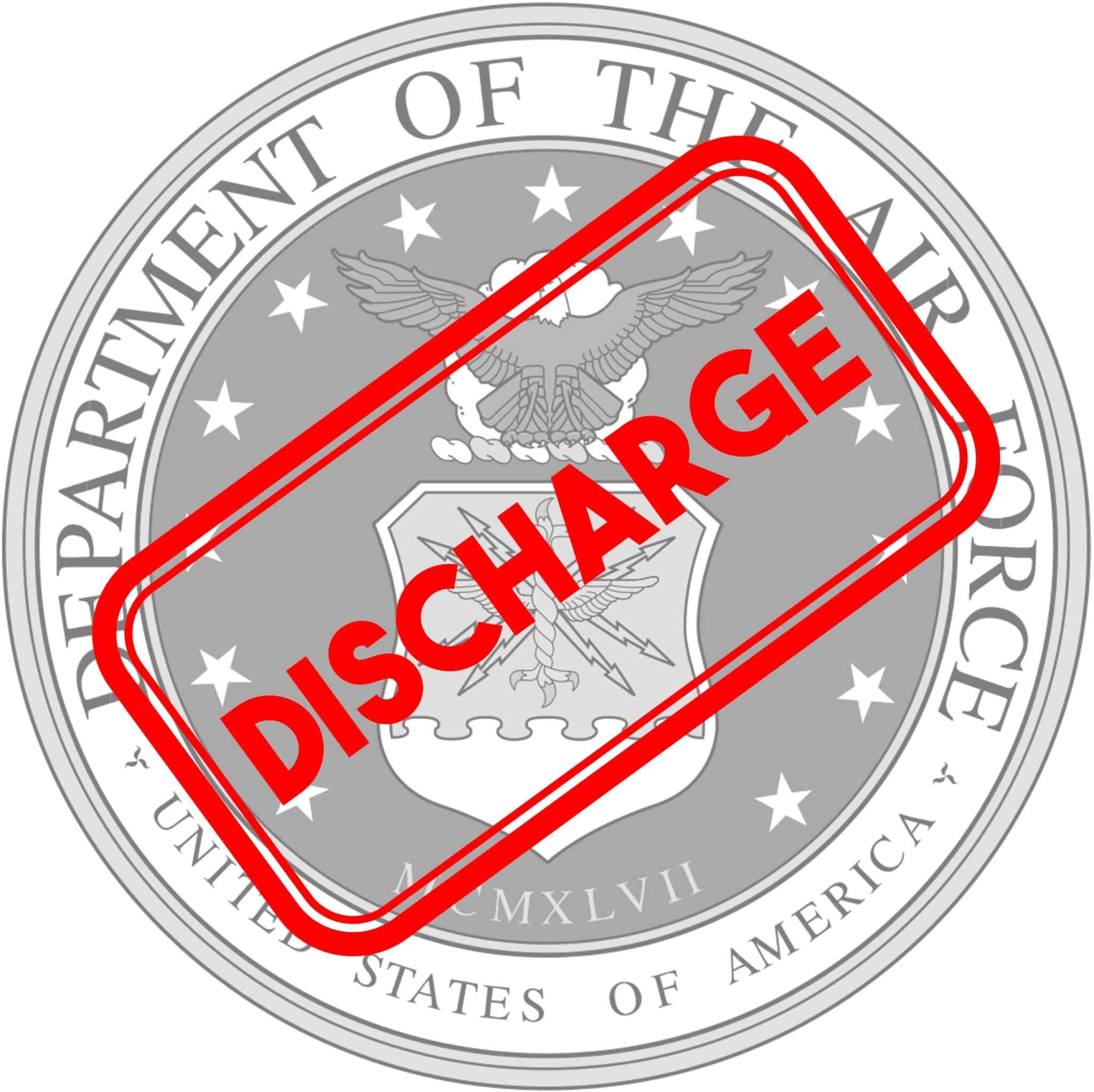If your commander has notified you that you may be administratively separated or discharged, you have a lot to lose. You have worked hard to build your military career, and it could all be over. You could lose your career, your paycheck, and your benefits. Depending on the characterization of your service (Honorable, General, or Under Other Than Honorable Conditions), you may also stand to lose most, if not all, of your VA Benefits.
With your future uncertain, it is extremely important that you respond to your ADSEP or Discharge in a professional and persuasive manner. It is also imperative that you keep the future in mind. How you respond to your discharge now could affect whether you could get your characterization upgraded in the future.
Here are Military Justice Guides’ Top 4 Tips for Responding to an ADSEP or Discharge:
The reason you are facing discharge or separation is that one of your superiors believes that you did something (or multiple things) wrong and should no longer be in the service. In your ADSEP or Discharge Rebuttal, it is important that you confront those allegations and the evidence against you. There are three common ways to respond to claims based on our “best practices.”
First, you can accept the allegations as true and simply hope for the best outcome. This most commonly happens when the evidence against you is clear. (For example, you sent inappropriate text messages to someone, and your command has those text messages.)
Second, you can dispute the allegations but not make a statement. This most commonly happens when the evidence against you is unclear, but anything you say about what happened could make things worse. (For example, someone claims you said something inappropriate to them, there is no hard evidence or witnesses, but you know that you actually did say the inappropriate thing.)
Finally, you can dispute the allegations with a statement and evidence. This most commonly happens when the evidence against you is unclear, and your statement could change things. (For example, someone claims you said something inappropriate to them, there is no hard evidence or witnesses, and you know you did not say the inappropriate thing.)
If the evidence against you is unclear, and your statement could change things, it is essential that you detail what you recall about the event or events in question. It is also vital that you point out the ways in which the evidence against you is being misinterpreted or otherwise does not support the allegations. Finally, if you have hard evidence supporting your case, you should strongly consider including that in your ADSEP or Discharge Rebuttal.
Although the team at Military Justice Guides are not lawyers, and cannot give you legal advice, we can say from experience that these are the best ways to address the allegations you are facing in your ADSEP or Discharge Rebuttal. There are many ways to respond to a ADSEP or Discharge. The key is to decide on a strategy and stick to your message. Provide information and evidence that helps your command understand your position and, hopefully, decide to retain you in the military.

When you are notified of ADSEP or Discharge, you might think that your career is over. You might even believe that your leadership does not care about all the positive things you have done. In our experience, however, it’s important that your leadership understands all the good things you have accomplished. You need to show them that what led to your potential ADSEP or discharge was out of character for you. You should include positive details about yourself and your career.
This is extremely important because, in the future, you could apply for a discharge upgrade if you end up being kicked out. Depending on the type of service characterization you receive, you could ask a Discharge Review Board to upgrade your characterization in the future. As an example, if you get a General (Under Honorable Conditions) discharge, you could apply for an upgrade to an Honorable. However, the Discharge Review Board will always want to see what you did during your career, and they will have access to your ADSEP or Discharge Rebuttal. You should begin this process by detailing all of your accomplishments NOW.
We always encourage our clients to detail their careers. Talk about your assignments and what you learned from them. List your training opportunities. You should definitely include lots of information about any awards you may have won or been nominated for, even if they are “small” awards. Explain your successes, including any major projects, decorations, recognition, etc. Explain that, because you have been successful in the past, you know you will be successful in the future.
Perhaps the most powerful way to respond to an ADSEP or Discharge is through character letters. Character letters allow you to ask other people, like your supervisors or co-workers, to stand up for you and help you show your true character. In any character letter, you want the author to talk about three things: how they know you, what they think about you, and what your best character traits are. Character letters are an excellent way for you to show your leadership how you contribute to the military community and how other people think you will succeed in the future.
When you ask for character letters from others, you should explain the allegations against you so that they understand why you need their support. You can also provide them with a Character Letter Template, which is a good way to show that you are planning to submit a professional rebuttal and need help.
Character letters are truly the best way to show that others support you and will stand by you if you are retained in the military.
In most cases, a military member who is recommended for Administrative Separation or Discharge may request a period of “probation.” This allows the command to suspend the separation for a period of up to twelve months to allow the military member to overcome their deficiencies. This is one of the best way for military members to remain in the service.
Face it, if you are being discharged, you likely have a background with your command or a history of misconduct. If you don’t change your ways, your military career is over. This period of “probation” is an opportunity for you to show your command that you deserve to remain in the military. Stay out of trouble and your career can be restored.
Each service has a “probation” option in their regulation:
The tips above should help you write a persuasive ADSEP or Discharge Rebuttal. Our products can also help. If you are interested, please feel free to read more on our website or purchase a Response Template below:

Our ADSEP Response Template is written by experienced military officers. When you purchase this template, you will be able to download and get started!

Our ADSEP Response Template is written by experienced military officers. When you purchase this template, you will be able to download and get started!

Our ADSEP Response Template is written by experienced military officers. When you purchase this template, you will be able to download and get started!

Our Discharge Response Template is written by experienced military officers. When you purchase this template, you will be able to download and get started!

Our Discharge Response Template is written by experienced military officers. When you purchase this template, you will be able to download and get started!
Military Justice Guides and MilitaryJusticeGuides.com are not law firms, nor do our employees act as legal counsel. MilitaryJusticeGuides.com provides an online portal to give users a general understanding of military law and to provide an automated software solution to individuals who choose to prepare their own documents. MilitaryJusticeGuides.com Services may also include a review of your answers for completeness, spelling, grammar, and for internal consistency of names, addresses and the like. At no time do we review your answers for legal sufficiency, draw legal conclusions, provide legal advice, opinions or recommendations about your legal rights, remedies, defenses, options, selection of forms, or strategies, or apply the law to the facts of your particular situation. We are not a law firm and may not perform services performed by an attorney. Military Justice Guides and MilitaryJusticeGuides.com, its related Services, and its forms or templates are not a substitute for the advice or services of an attorney.
